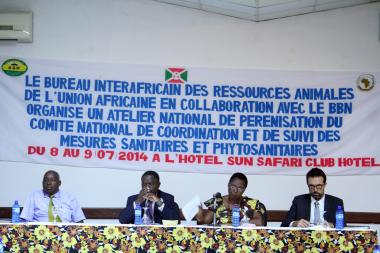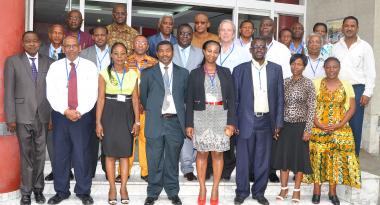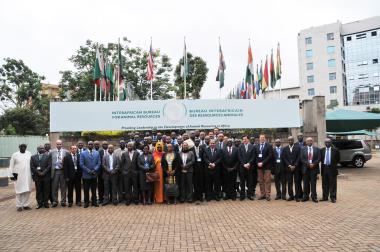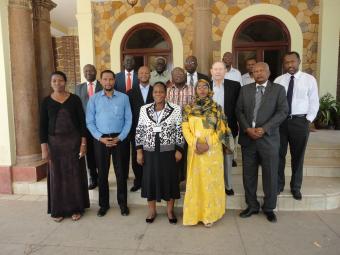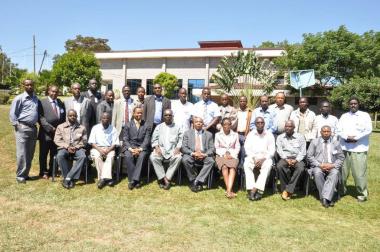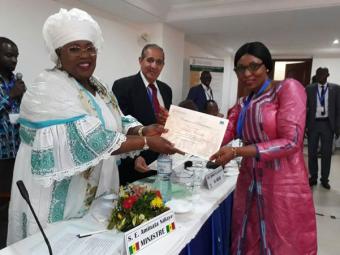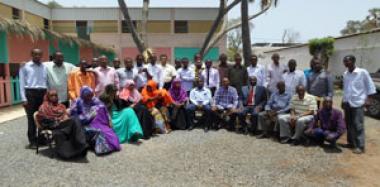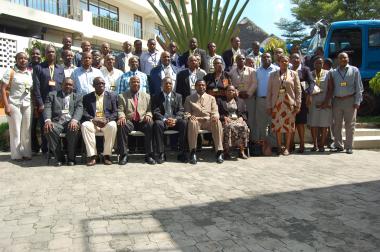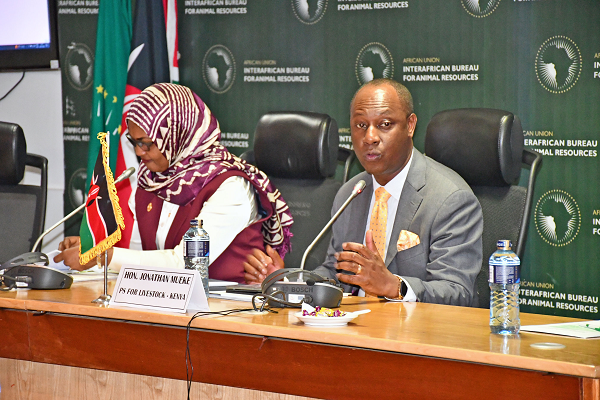
On January 29, 2024, the offices of AU-IBAR in Nairobi played host to a crucial consultative session with Hon. Jonathan Mueke, the Principal Secretary of the State Department of Livestock at the Ministry of Agriculture, Livestock, and Fisheries in Kenya. Representatives from the State Department of Livestock and the Directorate of Veterinary Services, AU-IBAR stuff, led by Dr. Huyam Salih, AU-IBAR’s Director were also present at the meeting to engage in discussions. This gathering aimed to delve into collaborative possibilities between AU-IBAR and Kenya, illuminating essential initiatives poised to influence the trajectory of livestock development in the region.
The agenda encompassed an overview of AU-IBAR's mandate, its noteworthy achievements, and ongoing/planned projects. These initiatives included the Resilient African Feed and Fodder Systems (RAFFS) Project, African Pastoral Markets Development (APMD) Platform, Animal Genetic Resources activities, Peste des Petits Ruminants (PPR) Eradication, Animal Welfare (with a specific focus on Donkey welfare), and the African Union's One Health Data Alliance Africa (OHDAA) Project.
Insights from the Meeting:
Hon. Jonathan Mueke expressed gratitude for the enduring collaboration with AU-IBAR and emphasized the Ministry's interest in genetics, animal feed, and disease control to bolster the export readiness of animals. The transformative agenda outlined key focus areas, including the development of drought-resistant genetics and the commercialization of animal feed, targeting critical concerns in arable regions.
Dr. Huyan Salih, Director of AU-IBAR, emphasized substantial milestones in the successful eradication of rinderpest and the imminent achievement of the goal to eradicate Peste des Petits Ruminants (PPR). She underscored AU-IBAR's notable transformation in program delivery and emphasized its commitment to the implementation of the Livestock Development Strategy for Africa (LiDeSA) as a fundamental cornerstone. Dr. Salih also acknowledged Kenya's consistent support throughout the years, serving as a gracious host to AU-IBAR and providing the necessary land for the construction of AU-IBAR's new secretariat.
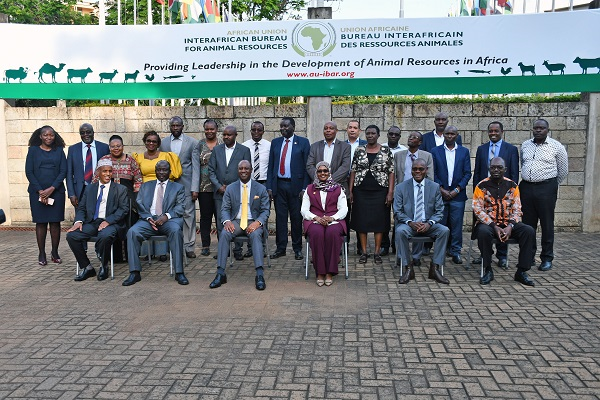
Key Discussions and Future Plans:
Discussions delved into pivotal topics such as the future of pastoralism, the convergence of genetics and animal health, and strategies for PPR eradication. The One Health approach emphasized the importance of ensuring food safety, committing to a complete ban on AMR usage in livestock, showcasing Africa's dedication to responsible veterinary medicine practices.
The meeting stressed the significance of timely updates on animal feed balance sheets, highlighting the evolving landscape of pastoralism and the role of genetics in livestock development. Closer collaboration on the implementation of the livestock master plan was also discussed, emphasizing the importance of resource sharing and data exchange among member states.
Path Forward:
The collaborative spirit was further solidified with plans to form small teams across various areas, including veterinary services, disease control, livestock production, and marketing. This collaborative effort aims to propel the implementation of the Livestock Master Plan, focusing on data-driven solutions, breeding improvement programs, and the commercialization of livestock in key livestock value chains.
The consultative visit showcased a commitment to advancing livestock development, emphasizing the economic contributions of the sector to national economies and GDP, and its transformative impact on the lives of farming communities. The collaboration between the Kenyan Government and AU-IBAR sets a promising trajectory for a sustainable and transformative future in livestock development, serving as a model for closer collaboration at the member state level.

